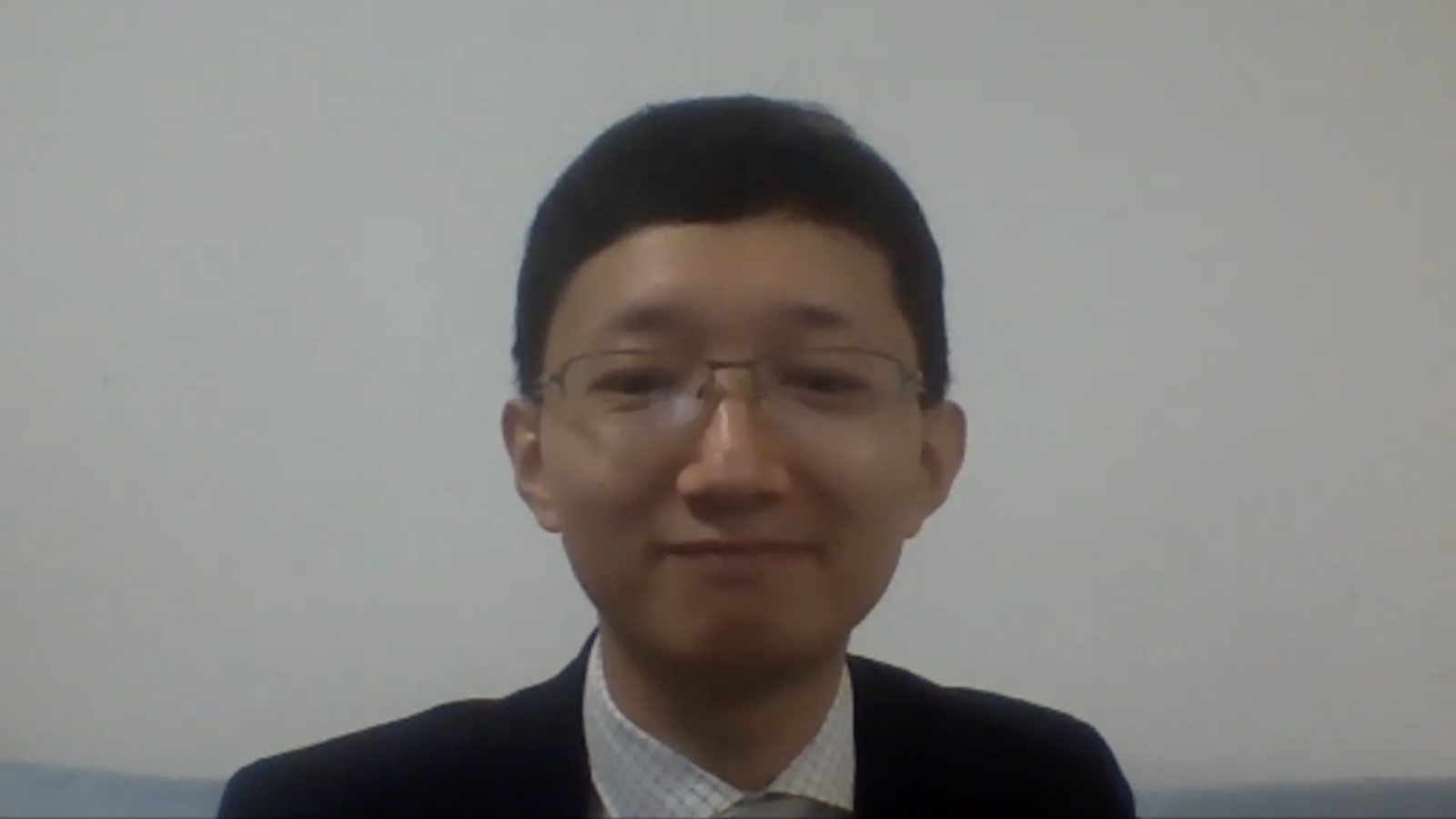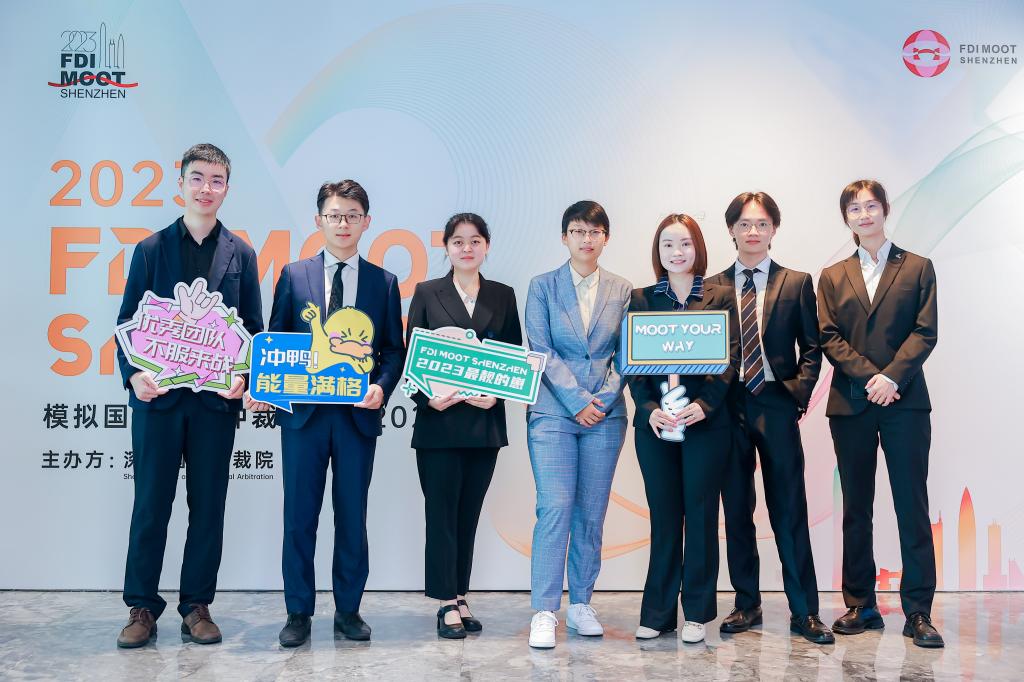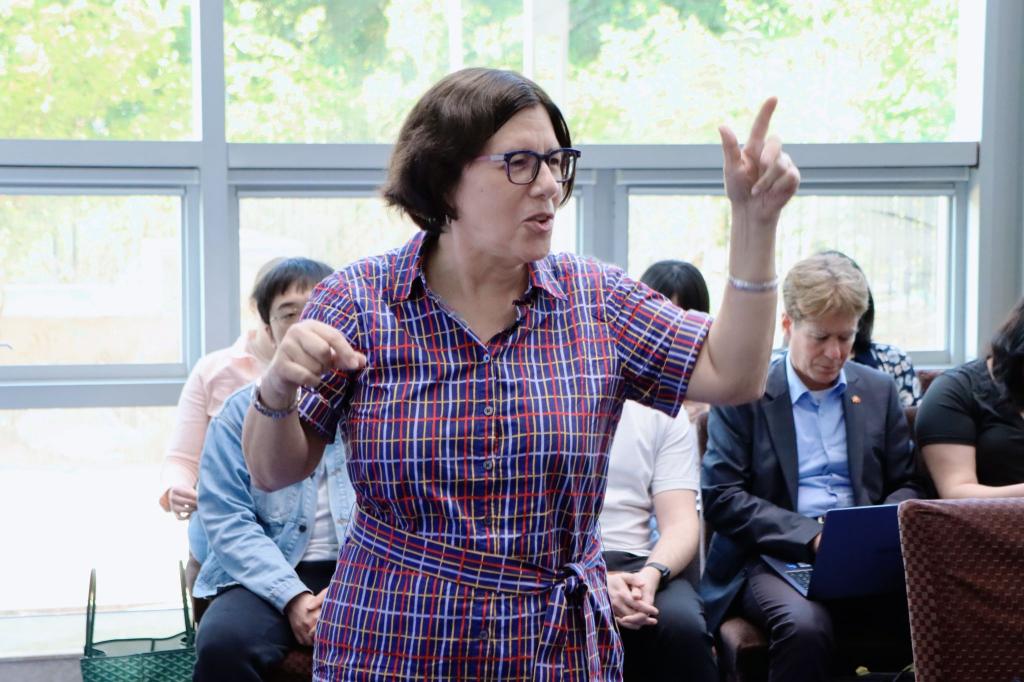Copyright © 2022 Peking University School of Transnational Law.

2020-06-20 Views: 1
Graduates of the Class of 2020,
Good morning!
First of all, congratulations! Congratulations on a few years of bitterness and happiness, you have completed all the positive components, and perfectly avoided every negative component to achieve the great legal effect of graduation!
Congratulations also go to your families, whose support, help and attention have made this achievement possible, and who deserve to share the joy of this moment.
 This has certainly been a remarkable year. What has happened this year is a profound reminder to us that we are living in a world full of connection, separation and uncertainty. History is compiled and confusing, the experience of life is insignificant, what can I share to all of you on this special graduation ceremony?
This has certainly been a remarkable year. What has happened this year is a profound reminder to us that we are living in a world full of connection, separation and uncertainty. History is compiled and confusing, the experience of life is insignificant, what can I share to all of you on this special graduation ceremony?
The major you studied is Law, and you have graduated from a law school dedicated to pursue the best professional legal education, and I believed most of you will continue to engage in the legal profession. Let’s talk about profession. Or, it is a question: How do we become professionals in a world like this?
Of course, this is not only a question to you, but also a self-questioning ahead; not only a question at this moment, but also for the future. In the nature and function of the discipline, Medicine is the closest subject to Law. In the first half of this year, when the epidemic raged, we can get a real sense of professional significance and strength from medical social workers. Most of my recent random thoughts were inspired by a few medical workers, especially Dr. Zhang Wenhong and Dr. Tao Yong. I want to share these reflections and the enlightenment, along with some roughness and fragility of them, my confidence and the hesitation, my firm belief and confusion to all of you.
What does it mean to be a “professional”? Dr. Zhang Wenhong’s popularity on social media seems to be due to his personalized expression. But in my perspective, the more important reason is that, he almost ideally fulfilled the duties of a professional and met the reasonable expectations of the public at this particular point of time. He is able to express the difficult and complex professional issues in a way that is well understood by the public without losing accuracy. This is not only a reflection of personality and communication skills, but also a sophisticated professional ability, moreover, an incisive understanding of how to connect with and serve the public professionally in such special situations.
The first thing I learned is that “profession” is something both distinguishes and connect us with others. Profession is a kind of “distinction”, which means a special kind of knowledge, skills and even ethics, to form a high threshold through a long period of specialized training. It is with the specially-trained knowledge and skills that professionals serve the welfare of the public. Without “distinction,” there are no qualified professionals; while ignoring “connection” might lead to arrogance, or even be “alienated” as the so-called “soulless experts”.
Dr. Zhang Wenhong’s rise to prominence has not spared the gossip, some of which was about his income. This kind of “concern” seems natural, too. When we are genuinely interested in the development of a field of expertise, we are naturally concerned with the income of professionals in that field (for example, doctors, nurses, judges, teachers, etc.). If the income is too low, we may be filled with righteous indignation: “No wonder the brain drain is so severe!” If the income is too high, people can’t avoid doubting: “Do they get fortune in a proper way?” From the perspective of personal life, we are in this mundane world and inevitably burdened by fame and fortune. In regard to institutional arrangements, to provide better working conditions to professionals, including appropriate economic incentives would be more beneficial to the whole society.
However, every time I saw such discussions and controversies, I always feel that there is something missing, and it seems to be a lack of some more “original”, more “internal” perspectives. Let’s take Yum China for an example. Yum is undoubtedly a successful catering company, but can we say that KFC is a good restaurant? Is the writer who sells best always a good writer? Is the highest-grossing movie always a good movie? Is the doctor who earns the most money always a good doctor? Is the law firm that generates most income always a good one? You might argue that in a market economy, everyone has a choice, and if they are not “good”, why would anyone choose them? That certainly makes sense. The market is indeed an important standard, and it is less arbitrary and more objective than many other standards. However, the standard of the market is still an external standard, an indirect evaluation, and an absolute inference. The inherent standards of thing is the more direct scale: it is not from some external standards to see, but from the inherent standards to measure whether it is good or not. We could not help asking ourselves, what exactly “good” means here? Oddly enough, we seem to have lost the ability to judge things by their internal dimensions.
The second inspiration on profession is, rather than depending on extrinsic criteria, profession is measured by its intrinsic yardsticks: the reliability of the knowledge, the perfection of the skill, the observation of the ethics, and most importantly, the achievement of our goals. The internal standards are not necessarily the same, but they are always intrinsic, which means they comply with the characteristics and purposes of things. For instance, you may prefer sweet food, and I like the spicy one, but we both judge the food by its intrinsic yardstick “whether it is delicious”; but when you say “this restaurant is expensive”, you are judging it by an extrinsic criterion. Similarly, for doctors, the intrinsic yardstick is “curing the diseases”, the even higher gauge may be “treating the patients properly”; other standards are extrinsic ones. Now, what are the intrinsic yardsticks for legal professions: to serve clients, to resolve disputes, or to carry out justice? This may not be an easy question, and that is why we need to answer it. Please don’t get me wrong, I am not saying that extrinsic standards don’t matter at all, or that all we need is the “unworldly” intrinsic yardsticks, but that at least we cannot forget there is always intrinsic yardsticks for professions; if we do so, it would be a complete “betrayal” of the professions. If we are only measured by extrinsic criteria rather than intrinsic yardsticks, the real professionalism would be suppressed. If we are only encouraged by extrinsic incentives rather than driven by intrinsic passions, our creativity would be exhausted, and consequently, we can’t help feeling “we don’t belong here.” The English philosopher Russell once observed, “To be without some of the things you want is an indispensable part of happiness.” To be without intrinsic yardsticks, the world would be overly simplistic and homogeneous.
However, would understanding the meaning of profession and its intrinsic yardsticks and putting them into practice ensure a professional to be successful and happy? Unfortunately, the answer is no. Otherwise, Dr. Tao wouldn’t have gone through such suffering. Why is that? Simply because we are not practicing the ideal of our professions in an ideal world.
Another inspiration I got is that we are working, pursuing, creating, bearing and enduring under the real limitations in an actual world, where it is hard for us to avoid frustration and bewilderedness. It seems quite inevitable that the edges eventually end up being worn down. It seems that the scholar’s noble rage and student enthusiasm will be fleeting like a comet. Just as the lyric goes, “Just because you are not on grassland, you forget you are actually a horse.” Sometimes, you would even forget you are a Secretariat! Beside difficulty and challenges, there are numerous temptations that are even harder to resist. What is relevant here is not the generality of “professions”, but the specific characters of the time and space we live in as well as the uncertainty of our individual destinies. But that is the actual world we have to face.
Were the story of Dr. Tao just another medical disturbance accident, perhaps all that remained would have been outrage and resignation. Fortunately, it was not. I was deeply touched by his essays and interviews. He started learning Medicine with straightforward and beautiful, but not particular original intention, just as how most of us started learning Law. Although he has excellent career experience, I was not surprised when he showed precious virtues like gentleness, benevolence, sobriety and magnanimity in his past experiences. What makes me truly admire him is the fact that his original intention, his excellence, gentleness, benevolence, sobriety and magnanimity withstood the hardest test. Dr. Tao said that he had witnessed too many misfortunes so that he could take massive hits; and after the incident he had a brand-new understanding of doctors as a profession and Medicine itself. I saw in him the complexity between one’s individual and one’s professional training and profession.
Last but not least, when we better understand the distinctions and connections, and the intrinsic yardsticks of professions, and use the intrinsic yardsticks to communicate with others and ourselves; and when we understand the actual world in which we live and pursue our ideals in this world, the professional training and practice would produce nourishment for us. Although it can hardly protect us from sufferings and misfortunes in the physical world, it can empower our mentality to tide us over the dark days in resisting hardship and acquiring strength. Such nourishment and power could, of course, be attained from other sources like family, but it won’t undercut the significance of the nourishment and power we get from the long-term professional work we are engaging in, which makes us more self-reliant individuals. Since we devote so much of our lives to our work and professions, it is justifiable that we expect and harvest more from it.
These are some of my recent less professional thoughts on “profession” and let’s encourage each other in our endeavors.
We gather here today to celebrate both an ending and a beginning. For those already concluded, I’m sure you are going to miss them; for those about to start, I don’t know if you are more upset or thrilled about them. Either way, I give you my sincerest congratulations and best wishes: instead of wishing you gain speedy success or go with roses all the way, I wish you all a “good” profession and life defined by yourselves.
I am sure you will experience more. You are always welcome back to STL and share with us “where you are with your story.”
Thank you!
June 29, 2024
June 20, 2024
June 20, 2024

June 20, 2024

June 19, 2024